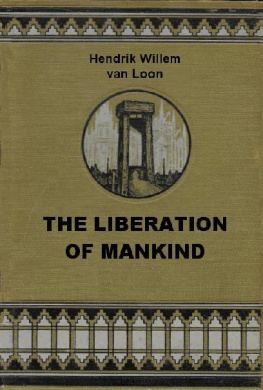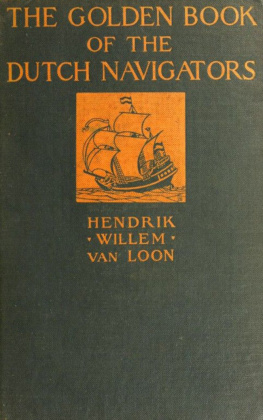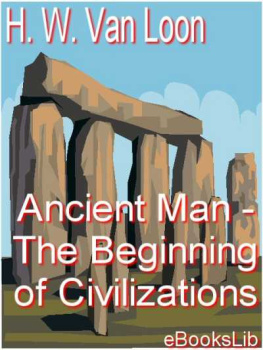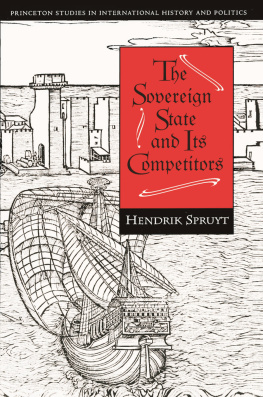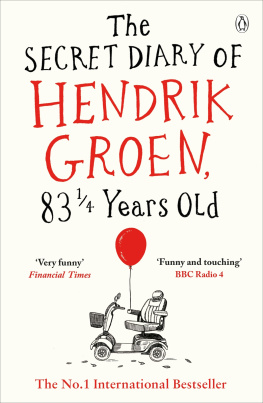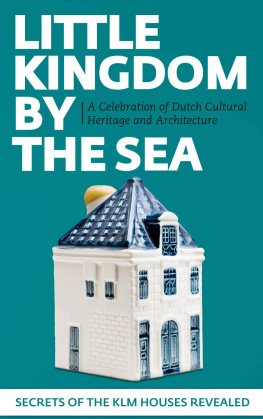Hendrik Willem van Loon,
ILLUSTRATED
GARDEN CITY NEW YORK
DOUBLEDAY, PAGE & COMPANY
1915
WILLIAM I William I
DEDICATION
This little book, telling the story of our national usurpation by a foreign enemy during the beginning of the nineteenth century, appears at a moment when our nearest neighbours are suffering the same fate which befell us more than a hundred years ago.
I dedicate my work to the five soldiers of the Belgian army who saved my life near Waerloos.
I hope that their grandchildren may read a story of national revival which will be as complete and happy as that of our own land.
Brussels, Belgium,
Christmas night, 1914.
APOLOGIA
And for those other faults of barbarism, Doric dialect, extemporanean style, tautologies, apish imitation, a rhapsody of rags gathered together from several dung-hills, excrements of authors, toys and fopperies confusedly tumbled out, without art, invention, judgment, wit, learning, harsh, raw, rude, fantastical, absurd, insolent, indiscreet, ill-composed, indigested, vain, scurrile, idle, dull, and dry, I confess all ('tis partly affected); thou canst not think worse of me than I do of myself.
So that as a river runs, sometimes precipitate and swift, then dull and slow; now direct, then per ambages; now deep, then shallow; now muddy, then clear; now broad, then narrow; doth my style flow: now serious, then light; now comical, then satirical; now more elaborate, then remiss, as the present subject required or as at that time I was affected. And if thou vouchsafe to read this treatise, it shall seem no otherwise to thee than the way to an ordinary traveller, sometimes fair, sometimes foul, here champaign, there enclosed; barren in one place, better soil in another.
Anatomy of Melancholy.Burton.
FOREWORD
This foreword is an afterthought. It was written when the first proofs of the book had gone back to the printer. And this is how it took its origin:
A few days ago I received a copy of a Dutch historical magazine containing a violent attack upon one of my former books. The reviewer, who evidently neither had taken the time to read my book nor had taken the trouble to understand what I was trying to say, accused me among other things of a haughty contempt for my forefathers during their time of decline. Haughty contempt, indeed! Nay, Brother of the Acrid Pen, was it not the truth which hurt thee so unexpectedly rather than my scornful irony?
There are those who claim that reviews do not matter. There are those who, when their work is talked about with supercilious ignorance, claim that an author ought to forget what has been said about his work. Pious wish! The writer who really cares for his work can no more forget an undeserved insult to the product of his brain than he can forgive a harsh word given unmerited to one of his children. The thing rankles. And in my desire to see a pleasant face, to talk this hurt away, as soon as I arrived this morning in New York I went to see a friend. He has an office downtown. It overlooks the harbour. From its window one beholds the Old World entering the new one by way of the Ellis Island ferryboat.
It was early and I had to wait. Over the water there hung a low, thin mist. Sea-gulls, very white against the gray sky, were circling about. And then suddenly, in the distance, there appeared a dark form coming sliding slowly through the fog. And through a window, opened to get over the suffocating effect of the steam-heat, there sounded the vibrating tones of a hoarse steam-whistlea sound which brought back to me my earliest years spent among ships and craft of all sorts, and queer noises of water and wind and steam. And then, after a minute, I recognized by its green and white funnel that it was one of our own ships which was coming up the harbour.
And at that instant everything upon which I had been brooding became so clear to me that I took to the nearest typewriter, and there, in front of that same open window, I sit and write what I have understood but a moment ago.
Once, we have been a very great people. We have had a slow decline and we have had a fall which we caused by our own mistakes and during which we showed the worst sides of our character. But now all this has changed. And at the present moment we have a better claim to a place on the honour-list of nations than the mere fact that once upon a time, some three centuries ago, our ancestors did valiant deeds.
For, more important, because more difficult of accomplishment, there stands this one supreme fact: we have come back.
What I shall have to tell you in the following pages, if you are inclined to regard it as such, will read like a mockery of one's own people.
But who is there that has studied the events of those years between 1795-1815 who did not feel the utter indignation, the terrible shame, of so much cowardice, of such hopeless vacillation in the hour of need, of such indifference to civic duties? Who has ever tried to understand the events of the year of Restoration who does not know that there was very little glory connected with an event which the self-contented contemporary delighted to compare to the great days of the struggle against Spanish tyranny? And who that has studied the history of the early nineteenth century does not know how for two whole generations after the Napoleonic wars our country was no better than a negative power, tolerated because so inoffensive? And who, when he compares what was one hundred years ago with what is to-day, can fail to see what a miracle of human energy here has happened? I have no statistics at hand to tell you about our shipping, our imports and exports, or to show you the very favourable place which the next to the smallest among the nations occupies. Nor can I, without looking it up, write down for your benefit what we have invented, have written, have painted. Nor is it my desire to show you in detail how the old neglected inheritance of the East India Company has been transformed into a colonial empire where not only the intruding Hollander but where the native, too, has a free chance to develop and to prosper.
But what I can say and will say with all emphasis is this: Look where you will, in whatever quarter of the globe you desire, and you will find Holland again upholding her old traditions for efficiency, energy, and tenacity of purpose.
Pay a visit to the Hollander at home and you will find that he is trying to solve with the same ancient industry of research the eternal problems of nature, while with the utmost spirit of modern times he attempts to reconstruct the relationship between those who have and those who have not, until a basis mutually more beneficial shall have been established. Then you will see how upon all sides there has been a return to a renewed interest in life and to a desire to do cheerfully those tasks which the country has been set to do.
And then you will understand how the year 1913, proud of what has been achieved, though not content that the goal has been reached, can well afford to tell the truth about the year 1813. For after a century and a half of decline Holland once more has aspired to be great in everything in which a small nation can be great.



